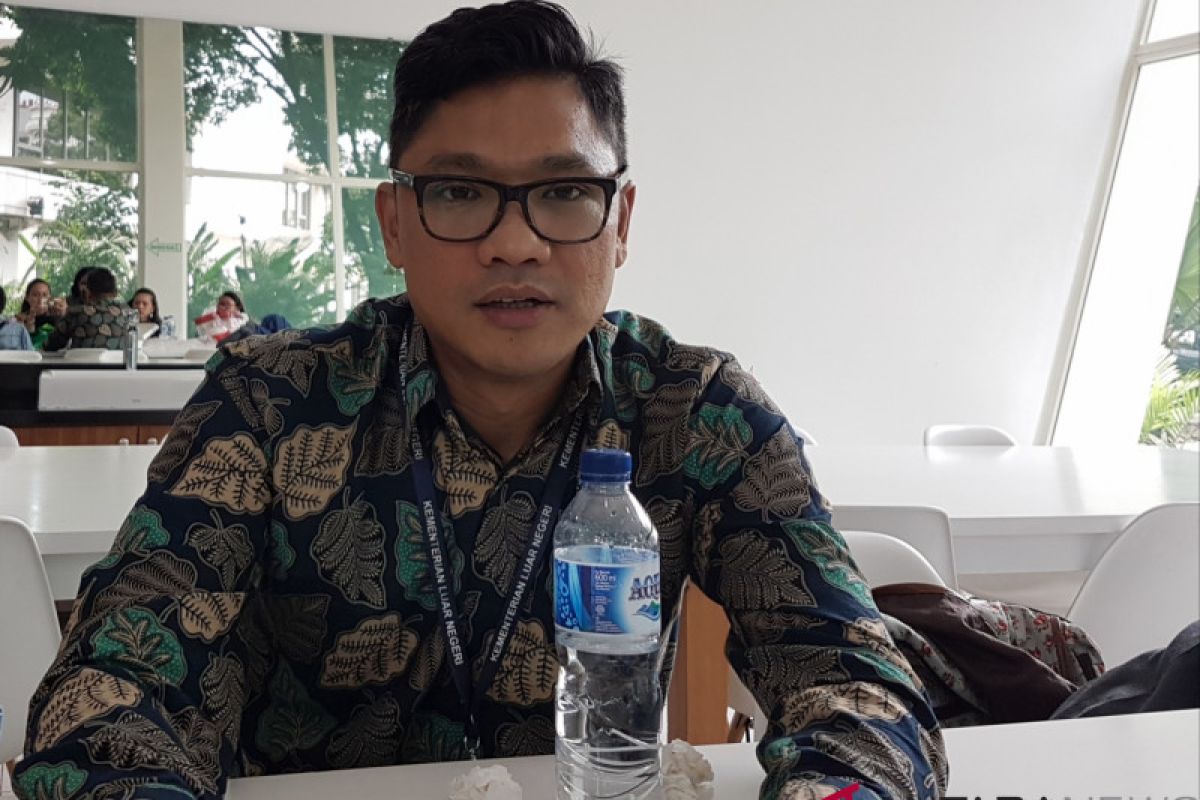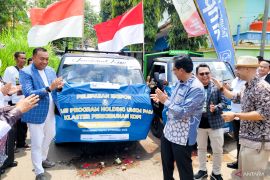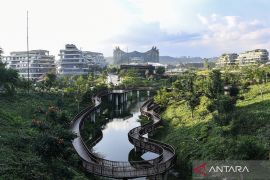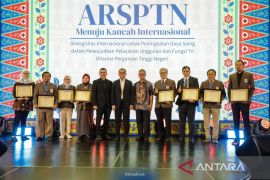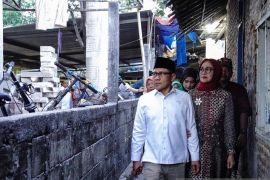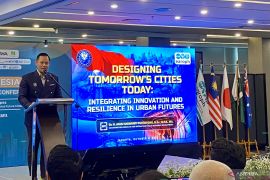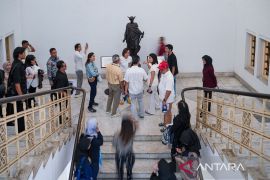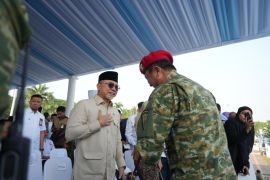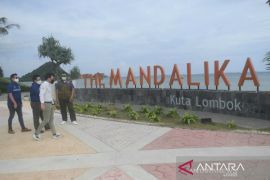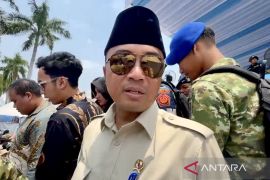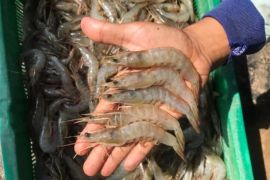In its efforts to build economic ties and enhance trade cooperation with African countries, Indonesia hosted a two-day Indonesia-Africa Forum (IAF) on Apr 10-11, this year, to bring nations in the continent closer to trade and economic cooperation.
As the second growing economy in the world, Africa has myriad hidden potential.
During his opening speech at the IAF, Vice President Jusuf Kalla cited Wakanda, a fictional African nation and home to the superhero "Black Panther," as a parable of how Africa has "hidden gems."
"I am reminded of the film `Black Panther` and its fictional nation Wakanda. It has great resources that are often unknown to the outside world, so is Africa, a continent with tremendous potential," he explained.
Nonetheless, Kalla believes Indonesia and Africa are also in the process of conducting massive infrastructure development to boost the economy.
"Like Africa, we (Indonesia) understand that infrastructure development is important, if we want to see rapid economic growth to benefit our society," Kalla stated.
The IAF facilitated business deals totaling US$586.56 million, far exceeding the initial target of $50 million.
The forum also concluded the announcement of business plans from 11 Indonesian companies, with a potential trade value of $1.3 billion.
The Indonesian government is targeting the completion of preferential trade agreement (PTA) with several African countries this year in order to streamline the flow of goods and services of both sides.
Negotiations on the PTA between Indonesia and Mozambique, ongoing for two rounds since April 2018, are targeted for completion by the middle of next year.
"We hope that the third round of negotiations would be held in January or February next year. Hopefully, the negotiations would be completed in March," Foreign Ministry`s Director for African Affairs Daniel Tumpal Simanjuntak stated.
The process of PTA discussions between the two countries began in 2017, when Foreign Minister Retno Marsudi had visited Mozambique.
The proposal to establish a trade agreement was again conveyed by President Joko Widodo when he met Mozambique President Filipe Nyusi on the sidelines of the IORA Summit in Jakarta last year.
It was only during the implementation of the IAF in Bali that Mozambique expressed its willingness to start PTA negotiations.
"If this agreement is established, it will complete our diplomatic efforts in Africa in terms of opening up market access and investment to the continent," Simanjuntak remarked.
Through PTA, currently still being discussed, the two countries will overcome tariff barriers, ranging,from 25 percent for finished products and 10 percent for semi-finished products.
Indonesia proposes some 100 products to get zero tariff, including palm oil and textiles.
"Mozambique will be a strategic hub for our products to enter the African market," Simanjuntak noted.
In addition to Mozambique, Indonesia is in the process of discussing the PTA with Tunisia.
However, he believes that economic diplomacy must not be simplified solely for trade cooperation.
Economic diplomacy must also be able to generate new sources of funding and outbound investment, Simanjuntak stated.
Several business agreements at the IAF were achieved by the Indonesia Eximbank with the African Export-Import Bank, as well as Standard Chartered Bank and Commerzbank.
It demonstrates that cooperation between Indonesian financial institutions and their partners can begin to be established.
"This means if there are projects, the financing not only comes from the state budget. We open the way to get funding from foreign funds," Simanjuntak explained.
In addition, several SOEs began to venture in Africa, such as PT Wijaya Karya (WIKA), which signed a contract to work on the renovation project of the Presidential Palace of Niger, with a value of $26.7 million.
PT TIMAH also plans to build a smelter in Nigeria through a project worth $25.9 million by cooperating with local company Topwide Ventures.
"After we got a project to renovate the Presidential Palace of Niger, several other African countries were interested in cooperating with Indonesia. We see this as a positive opportunity to work on other infrastructure projects in Africa," Simanjuntak noted.
Senegal, Ivory Coast, and Tanzania, especially the Zanzibar, are countries in Sub-Saharan Africa that are willing to establish infrastructure cooperation with Indonesia.
In order to strengthen infrastructure cooperation with African countries, Indonesia will hold the Indonesia-Africa Infrastructure Dialogue on August 20-21, 2019, in Bali.
Increasing the awareness of middle-class Indonesians to start paying attention to Africa is a task for the current government.
The mindset of SOEs and private companies regarding business expansion to Africa that is considered to be less profitable must also be changed, given the continent`s economic potential in the coming years.
The International Monetary Fund projects that Africa will be the world`s second-fastest-growing region in the period to 2020.
Between 2010 and 2015, Africa`s overall GDP growth averaged just 3.3 percent, considerably weaker than 4.9 percent a year between 2000 and 2008.
However, average growth hides a marked divergence, according to McKinsey Global Institute report titled "Lions on the move II: Realizing the potential of Africa`s economies."
A much less robust economic performance by two groups of African economies dragged that average down -- oil exporters hit by the decline in oil prices and countries affected by the political turmoil of the Arab Spring (Egypt, Libya, and Tunisia).
For the rest of Africa, growth actually accelerated to 4.4 percent in 2010 to 2015, from 4.1 percent in 2000 to 2010. In addition, long-term fundamentals are strong, and there are substantial market and investment opportunities on the table.
Future growth is likely to be underpinned by factors, including the most rapid urbanization rate in the world and, by 2034, a larger working-age population than either China or India.
Accelerating technological change is helping to unlock new opportunities for consumers and businesses, and Africa still has abundant resources.
"Indonesia can be a global player through Africa," Simanjuntak noted.
Researcher from the Indonesian Institute of Sciences (LIPI) Ahmad Helmy Fuady has stated that Africa could no longer be seen as "the hopeless continent."
Africa`s development has made several countries vie to invest in the region, thereby making the competition for entry stiffer.
One of the reasons for such tough competition was since many countries had noticed the potential of non-traditional markets.
He also appealed to the government to not solely rely on the exports of natural resources.
"Even if we want to enter the non-traditional market, it is also a fairly heavy competition, especially if we only rely on traditional natural resource-based exports," he stated.
While reminding the government to continue working on the African market, Helmy also warned about how difficult it is for Indonesia to compete with China, as the current main partner of Africa`s trade and investment.
In 2017, China had dominated trade in Africa, with a total trade value of $129.9 billion, followed by India and Japan.
Indonesia is placed fourth, with a trade value of $8.76 billion.
"We cannot compete if our economic development works as usual. It requires extraordinary efforts," he concluded.
Editing by suharto
Reporter: Yashinta Difa Pramudyani
Editor: Fardah Assegaf
Copyright © ANTARA 2018
